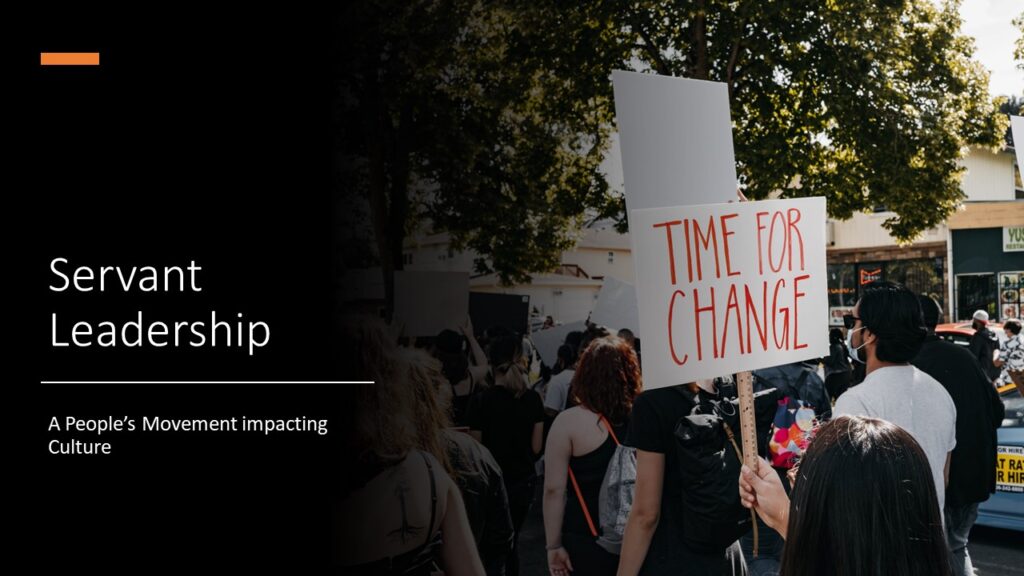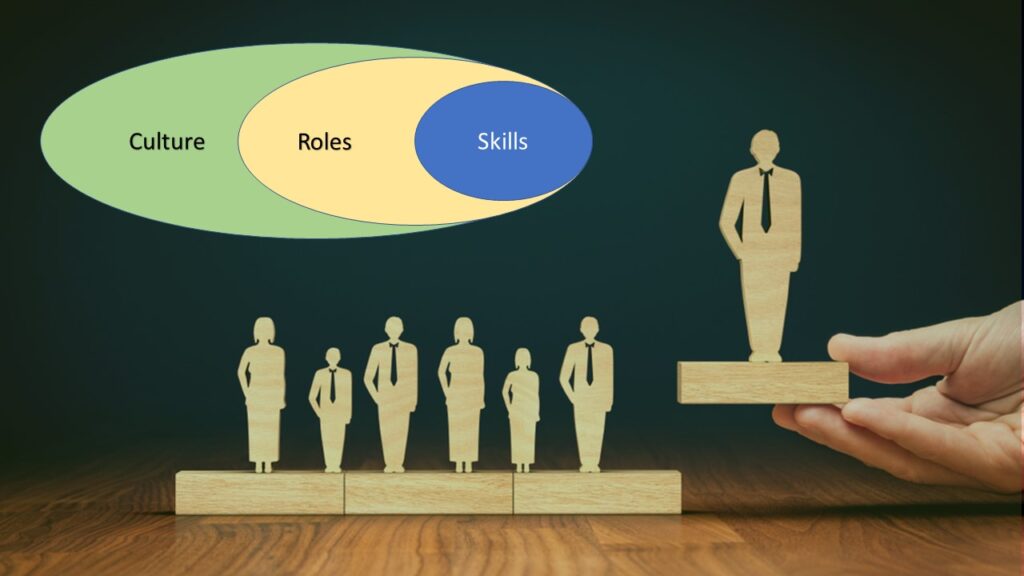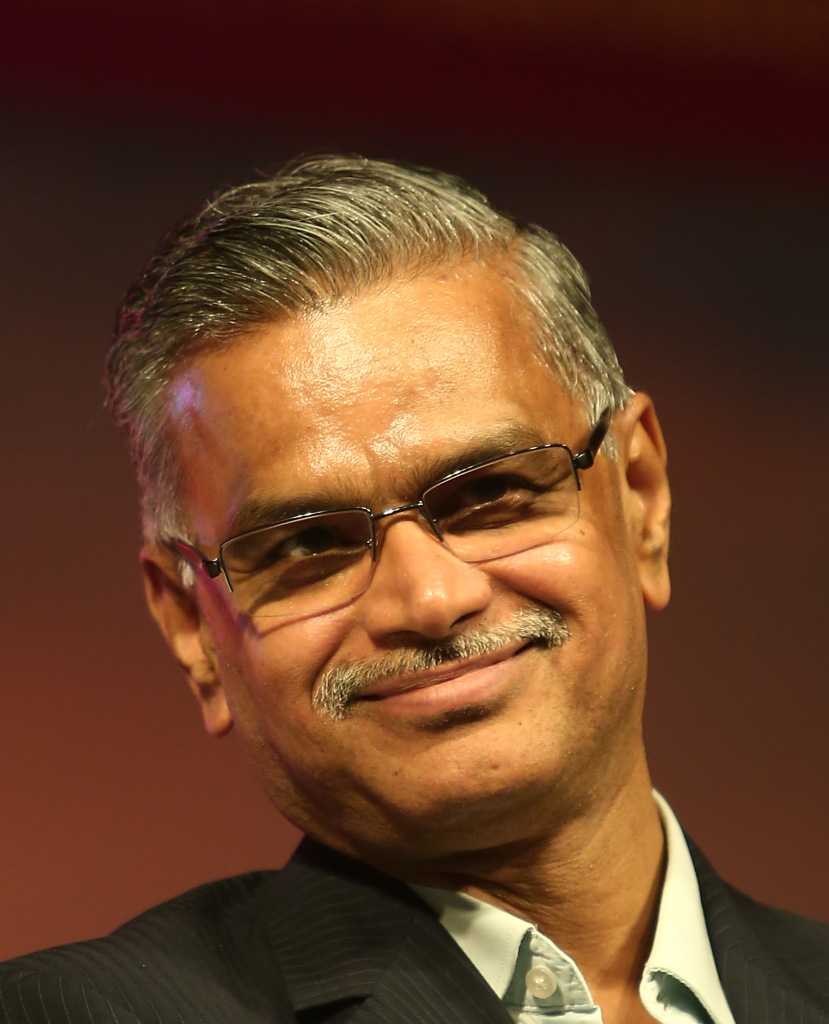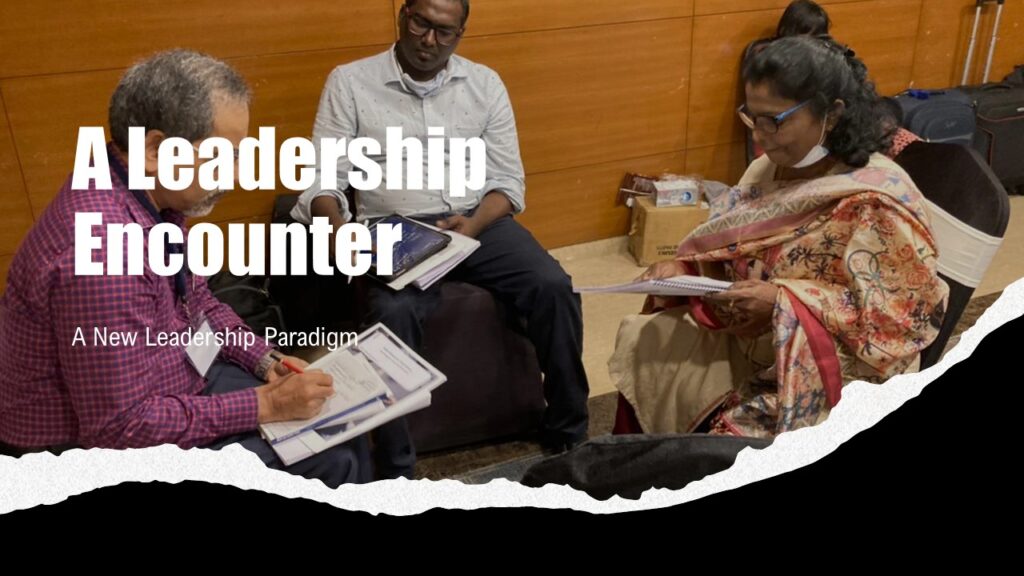
The future of work has been a hot topic of study for the past several years. The question that I would like us to ponder on today is the leadership philosophy that is best suited for the future of work. The future of work requires each one of us to have an encounter with a new leadership paradigm. What is this new leadership paradigm? In this blog we will examine one part of this encounter.
Studies reveal that the future of work will be more Hybrid pitting Remote working Vs. Traditional office. The concept of Gig workers or alternate works have been doing the rounds since early this millennium. Employees have a lot of choice in the future of work. Technology plays a a major role in changing the profile of the work, the worker and the workplace of the future. Employees are not happy with organisations that provide a great Employee Experience (EX). They are looking for great life experiences, which often transcend the boundaries of the traditional office. Engaging the employees requires constant innovation. Traditional ways through monetary means alone are not sufficient. The great resignation proved this point beyond doubt. Employees are looking for a holistic approach from their employers whether it be their well being or upgradation of their skills.
The role of leadership in meeting these new challenges cannot be overstated, or over emphasized. My studies reveal that there are four tenets that differentiate the good, the bad and the ugly of leadership of the future of work.
- Power
- Purpose
- Values
- Significance
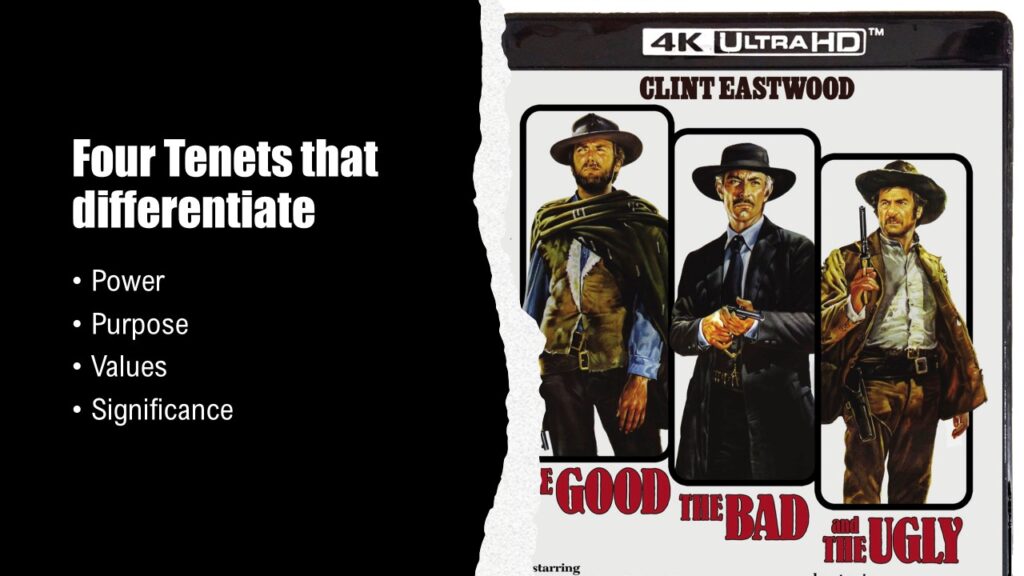
Power
I have discussed this in an earlier blog (https://leadyne.com/power-in-servant-leadership) . The fact is that leadership and power have always been bedfellows and not always the right way. While we acknowledge and accept the fact that there are several leaders who use power appropriately, the list of leaders who misused power is longer in the history of humanity and especially in business history. It is becoming increasingly clear that the employees of the future are not going to respect leaders who use power to further their self-interests. It is not the absence of power that differentiates. It is the conscious choice to use the power “with people” and “for people” as against “over people” that will different the good, the bad and ugly of leadership.
Purpose
The concept of “Purpose-over-Profit” might have sounded outrageous a couple of decades back. But not any more. Several business leaders are touting purpose as their focus. One of the recent HBR articles on Great Resignation[1] argues that mismatch of personal purpose with organisational purpose is a major cause of the Great Resignation. In short, while everyone agrees that money is required to keep a business running, making money cannot be the purpose of a business, just as filling gas in a car is the not the purpose for which we buy a car. Employees of the future are looking for organisations to pursue a higher purpose, a purpose that solves some problems that the current generation is facing or problems that future generations could face.
Values
Organisational values are an integral part of the culture of the organisation. More precisely how the leaders embody or demonstrate those values, defines the culture of the organisation. Employees f the future will not be satisfied by mere lip service to values or with just nicely farmed values adorning the wall so the corporate office or the websites. They want to see it in action. They want to see it embedded in the culture of the organisation. Absence of a strong set of organisational values and/or failure of leaders to translate such values in to observable workplace behaviours results in toxic culture. An MIT research into to topic reveals that toxic culture is by far the biggest driver of the Great Resignation[2]. Employees are looking for leaders who espouse a set of values in line with their personal values and moral standards.
Significance
Corporate culture has eulogized success disproportionately in the past, to the extent of downplaying collaborative work culture. Individual successes have been rewarded bountifully and this resulted in unhealthy competition within organisation itself. Employees of the future are not impressed by individual success of leaders. They are asking the question, what difference did that make to others? What difference did the success of a leader make to me? What difference did it make to the world? What difference will it make to the next generation. This is what I call as the “Life of significance”, that I discussed in my other blogs https://leadyne.com/4-personal-habits-2 and https://leadyne.com/four-reasons-why-servant-leadership-is-the-most-suited-leadership-philosophy-for-the-post-covid19-new-normal
These are the four tenets that we need to look at when we encounter the new leadership Paradigm for the future of work. Servant Leadership scores high on all these four tenets and thus becomes a viable alternative for the Future of work.
Come and embrace this leadership philosophy.
___________________________________________________

Dr. Madana Kumar, PhD is the Servant Leadership Evangelist at UST. You can connect with him here or contact him here.
[1] The Great Resignation or the Great Rethink?, by Ranjay Gulati, HBR Review March 22, 2022, Web accessed at https://hbr.org/2022/03/the-great-resignation-or-the-great-rethink on 9 June 2022.
[2] Donald Sull, Toxic Culture Is Drivingthe Great Resignation, MIT Sloan Management Review, Jan 11, 2022 . Web accessed at https://sloanreview.mit.edu/article/toxic-culture-is-driving-the-great-resignation/ on 20 Jan 2022
